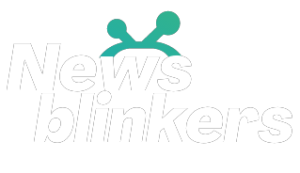Explain What Distinguishes a Stroke from a Heart Attack: Complete Guide
Stroke in Depth
When a stroke occurs, immediate action is crucial. Time is of the essence, as the sooner treatment is administered, the better the chances of recovery. Read about How Long Does a Heart Cath Take
Symptoms to Look For
- Sudden numbness or weakness in the face, arm, or leg, especially on one side of the body.
- Confusion, trouble speaking, or difficulty understanding speech.
- Trouble seeing in one or both eyes.
- Severe headache with no apparent cause.
- Trouble walking, dizziness, loss of balance, or lack of coordination.
Types of Strokes
- Ischemic Stroke is caused by a blood clot that blocks an artery in or leads to the brain.
- Hemorrhagic Stroke: Occurs when a blood vessel in the brain bursts, leading to bleeding.
Treatment Options
- Ischemic strokes may be treated with clot-busting medications like tissue plasminogen activator (tPA).
- Hemorrhagic strokes require immediate medical attention to stop the bleeding.
Also read the Article: Does Peanut Butter Cause Heartburn
Heart Attack in Depth
Understanding the nuances of a heart attack is equally critical, as it can also be life-threatening.
Common Symptoms
- Chest pain or discomfort may feel like pressure, squeezing, fullness, or pain.
- Pain or discomfort in other upper body areas, including the arms, back, neck, jaw, or stomach.
- Shortness of breath, with or without chest discomfort.
- Nausea, lightheadedness, or cold sweats.
Diagnosis and Treatment
- An electrocardiogram (ECG or EKG) helps diagnose heart attacks.
- Treatment may involve medications, angioplasty, or bypass surgery.
The Basics
What is a Stroke?
A stroke occurs when blood flow to the brain is interrupted, leading to damage in the affected area. This disruption can be caused by a blood clot (ischemic stroke) or a ruptured blood vessel (hemorrhagic stroke).
What is a Heart Attack?
Conversely, a heart attack, also known as a myocardial infarction, happens when blood flow to a portion of the heart muscle is blocked. This blockage is often due to a blood clot forming in one of the coronary arteries.
Causes and Risk Factors
Stroke Causes and Risk Factors
Causes
- Ischemic Stroke: Typically caused by a blood clot obstructing a blood vessel in the brain.
- Hemorrhagic Stroke: Occurs when a blood vessel ruptures in the brain.
Risk Factors
- High blood pressure
- Smoking
- Diabetes
- High cholesterol
- Family history of stroke
Heart Attack Causes and Risk Factors
Causes
- Coronary artery blockage due to a blood clot or plaque buildup.
Risk Factors
- Smoking
- High blood pressure
- High cholesterol
- Obesity
- Sedentary lifestyle
Symptoms
Stroke Symptoms
- Sudden numbness or weakness in the face, arm, or leg (usually on one side of the body)
- Confusion
- Trouble speaking or understanding speech
- Severe headache
- Problems with balance or coordination
Heart Attack Symptoms
- Chest pain or discomfort (often described as a tightness, pressure, or squeezing sensation)
- Pain radiating to the arm, shoulder, jaw, or back
- Shortness of breath
- Nausea or vomiting
- Cold sweat
Diagnosis and Treatment
Stroke Diagnosis and Treatment
Diagnosis
- Physical examination
- Imaging tests (MRI or CT scan)
- Blood tests
Treatment
- Medications to dissolve clots or reduce blood pressure
- Rehabilitation therapy
Heart Attack Diagnosis and Treatment
Diagnosis
- Electrocardiogram (ECG or EKG)
- Blood tests to check for cardiac enzymes
Treatment
- Medications (aspirin, clot-busting drugs)
- Angioplasty and stent placement
- Bypass surgery
Prevention
Stroke Prevention
- Managing blood pressure
- Maintaining a healthy diet
- Regular exercise
- Smoking cessation
- Limiting alcohol consumption
Heart Attack Prevention
- Healthy diet
- Regular exercise
- Avoiding smoking and secondhand smoke
- Managing stress
- Medications (as prescribed by a healthcare provider)
Conclusion
In summary, while strokes and heart attack are critical medical emergencies, their causes, symptoms, and treatments differ. Recognizing the signs and seeking immediate medical attention is crucial to minimize damage and improve outcomes. By understanding these differences, you can better protect yourself and your loved ones from these life-threatening events.
FAQs
Is a stroke worse than a heart attack?
No, both conditions are equally severe and require immediate medical attention.
Can a heart attack cause a stroke or vice versa?
Yes, they share some risk factors, and one can increase the risk of the other.
What is the typical recovery time for stroke and heart attack patients?
Recovery varies depending on the individual and the event’s severity but may take several weeks to months.
Are there any warning signs before a stroke or heart attack occurs?
Some individuals may experience warning signs such as chest pain or transient weakness before a heart attack or stroke, but these are not universal.
Can a healthy lifestyle prevent both strokes and heart attacks?
Adopting a healthy lifestyle can significantly reduce the risk of both conditions.
